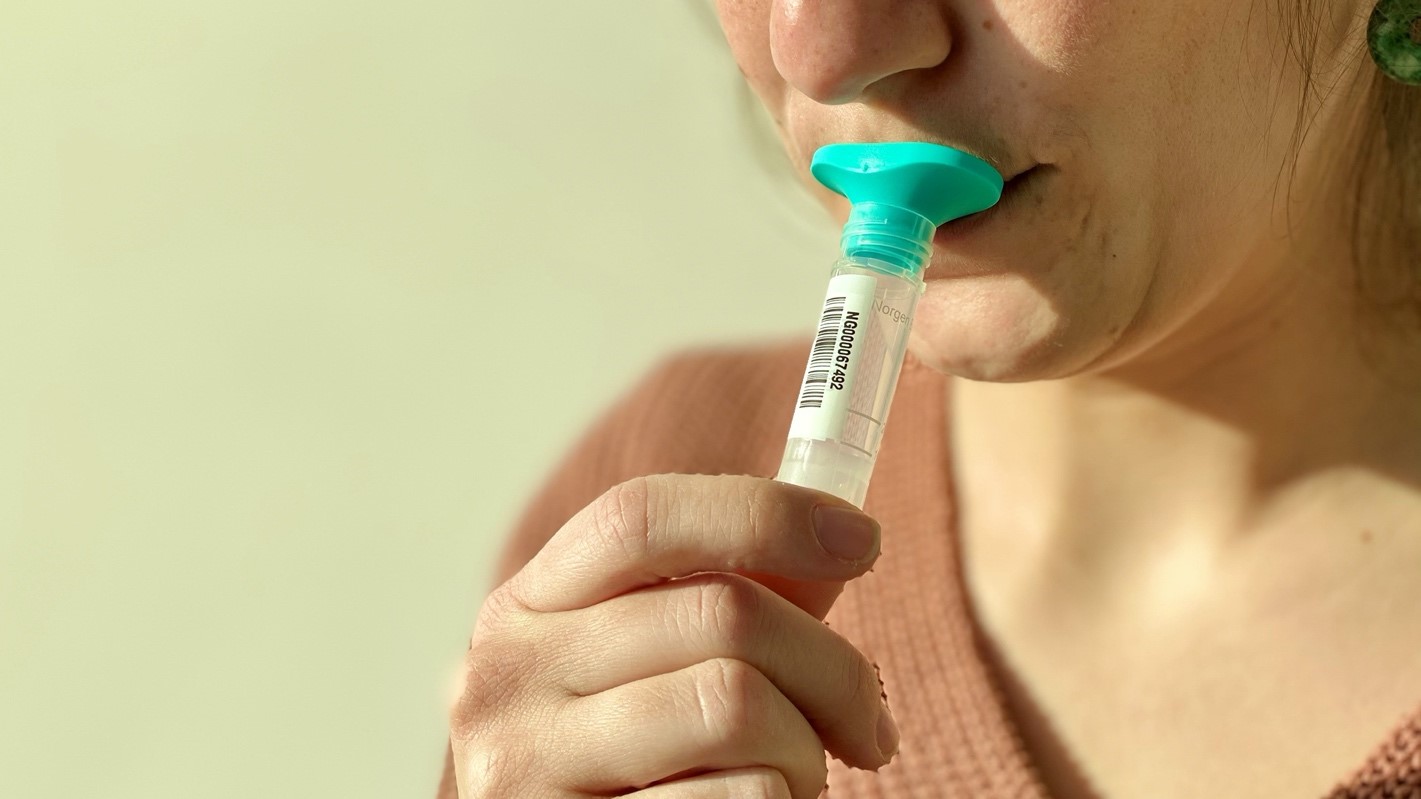Biogazelle launches preventive saliva test to help avoid COVID-19 outbreaks in the workspace.
At present, diagnosis of the coronavirus is mostly done with nasopharyngeal swabs, which are often experienced as unpleasant or even painful. In addition, screening with nasopharyngeal swabs needs to be carried out by medically trained staff. This makes these tests less useful for repetitive screening of large groups of people, such as employees or students.
Saliva based PCR tests offer a solution to both problems.
Biogazelle launches preventive saliva test to help avoid COVID-19 outbreaks in the workspace
Prof. Jo Vandesompele, principal investigator of the OncoRNALab in the Center for Medical Genetics (UGent), is co-founder and Chief Scientific Officer at Biogazelle, a contract research organization specialized in nucleic acid biomarkers supporting clinical drug development and diagnostic testing. Since the start of the pandemic, Biogazelle has been supporting the national testing efforts with over 400.000 Sars-CoV-2 tests diagnosed on its high-throughput and scalable PCR platform. Last week, Biogazelle launched its new repetitive saliva screening program for which they partnered with a handful of other Flemish companies; IHCT, Labo Nuytinck and Twintag. The goal is to avert virus spreaders to roam around the work floor infecting others, by means of preventive screening of employees once or twice a week.
At present, diagnosis of the coronavirus is mostly done with nasopharyngeal swabs, which are often experienced as unpleasant or even painful. In addition, screening with nasopharyngeal swabs needs to be carried out by medically trained staff. This makes these tests less useful for repetitive screening of large groups of people, such as employees or students.
Saliva based PCR tests offer a solution to both problems. Easy self-sampling of saliva is simple and pain free, and therefore ideally suited for repetitive screening. Moreover, a nationwide study led by Prof. Jo Vandesompele and Prof. Pieter Mestdagh, supported by Biogazelle and UCB, demonstrated that individuals with medium-to-high viral loads can be accurately identified. The test is most reliable if used in a repetitive setting, i.e. once or twice a week. This was confirmed in another pilot study by Biogazelle, where the logistics of large-scale preventive screening with saliva were further fine-tuned. In this study, a selection of schools, companies and nursing homes, were successfully tested twice a week for one month.
The test itself is about three times cheaper than the classic nasopharyngeal test, and comes together with a personal QR-code card, provided by Twintag. In the morning of the day of testing, the employee scans the QR-code on their personal card and the barcode of their sample to register their test. Sampling of saliva is preferably done in the morning, right after waking up and before eating, drinking, and brushing teeth. The samples are brought to the workplace, where Biogazelle will pick them up to perform the PCR test in their lab. Results are available in the evening or the latest by next morning, and positive cases are communicated to the health and safety advisor of the company.
By repetitively screening employees this way, Biogazelle aims to help employers re-open the workplace or prevent their business from closing due to COVID-19 outbreaks.
More information can be found on http://www.speeksel.be

